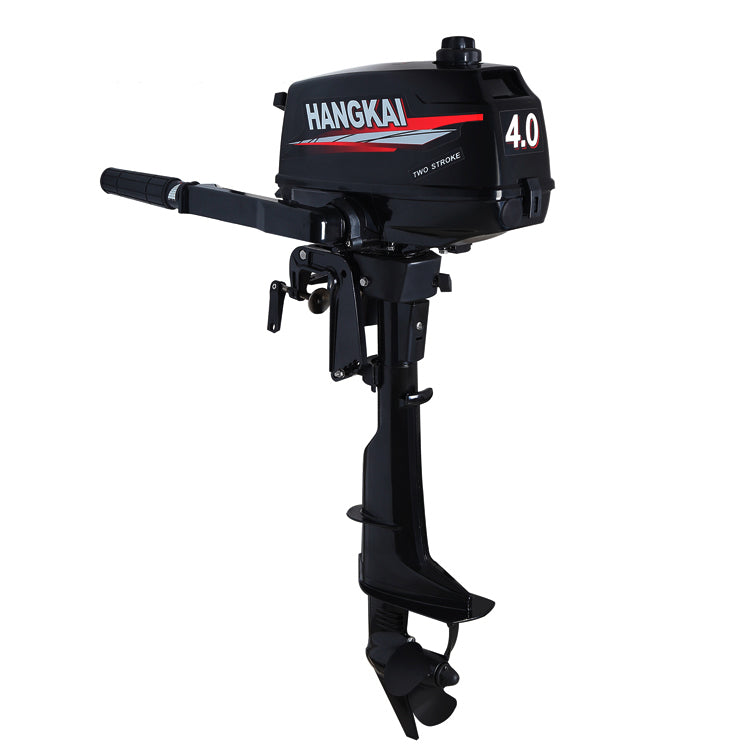航凱hangkai
Two-stroke 4.0HP outboard motor
Two-stroke 4.0HP outboard motor
Couldn't load pickup availability
product specifications
product specifications
【engine】
Brand: HANGKAI
Model: Two-stroke 4.0HP horsepower
Displacement: 74.6cc
Transmission ratio: 2.08(27:13)
Number of cylinders: 1
Maximum power: 2.9kw
Shift position: FN forward-neutral
Packing volume: 102x47x40mm
Cooling system: water cooling
Control system: tiller control
Startup method: manual start
Refueling method: It is recommended to add 92 unleaded gasoline
Fuel mixture ratio: gasoline:oil=50:1
Recommended engine oil: two-stroke engine oil
Net weight/gross weight: 13.5kg/17.5kg
Cylinder diameter x stroke: 47x43mm
Propeller Size: 3-7 1/4'' x 6'' in
Tilt System: Manual Tilt
Lengthxwidthxheight: 450x300x960mm
Standard fuel tank: built-in 1.4L
Can it be used with an external fuel tank: No
Applicable stern plate height: 440mm short axis (applicable to SKIF boats)
Contains objects
Contains objects
4hp engine*1, manual, proportioning oil bottle, funnel, tool bag, flameout switch key, starting pull cord, water pump blade
Book a boat viewing
Book a boat viewing
It is recommended to make an appointment to see the physical product, ask the staff immediately if you have any questions, and confirm before ordering.
The studio is located in Wugu District, New Taipei City . To make an appointment, please send a private message to the official website in the dialog box in the lower right corner.
Shipping instructions
Shipping instructions
The shipping fee for a single piece in Taiwan is $500, and it will be shipped within 3 days after the spot order is placed.
Please note that since both the boat and the engine are large items, shipping charges will be charged separately.

Engine usage tutorial
Common QA
How long can an outboard be used?
It's like a motorcycle. If you take good care of it, it can last forever.
Can ordinary small cars carry it?
Can
How should the hull and engine be stored when not in use?
Just rinse the hull with clean water and let it dry. The storage location should avoid prolonged sun exposure.
After landing, the engine starts circulating with fresh water to prevent salt from clogging the cooling waterway.


